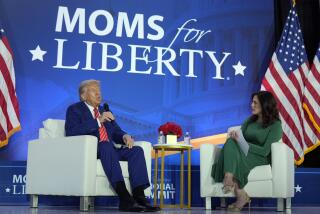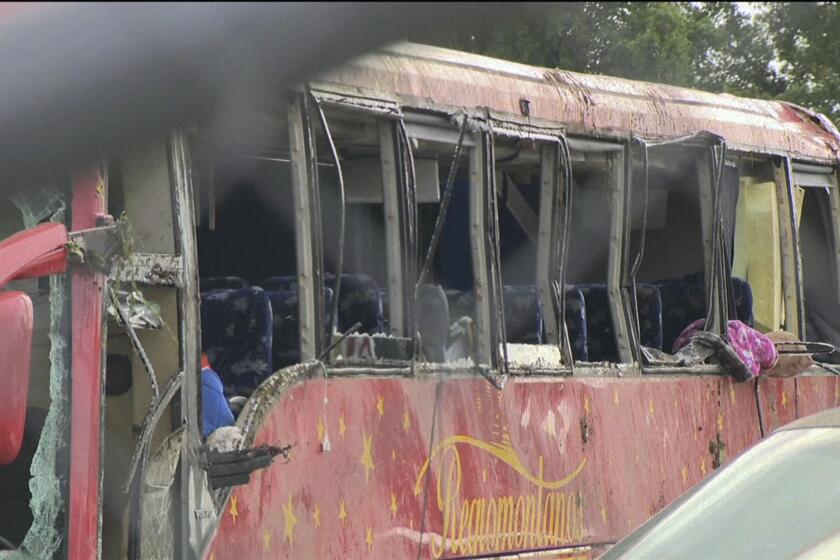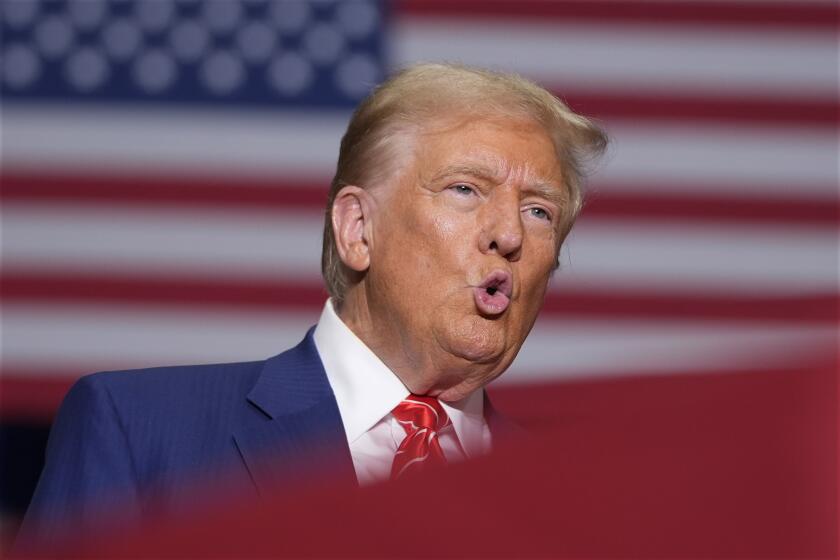From Uzis to Luxury Cars to Coconuts, Philippine Congress Embroiled in Scandal
Closed by resident Ferdinand E. Marcos in 1972 and reopened just over a year ago, the Philippine Congress now is swept up in scandals.
Hardly had the dust settled on a scandal involving firearms imports when members of the House of Representatives were facing charges of trying to corner the export of coconuts to Taiwan.
The Senate also has come under fire for deciding to use taxpayers’ money to buy 35 foreign luxury cars for each of its 23 members and certain staff.
Just before the coconut scandal broke in late January, columnist Neal Cruz of the Daily Globe wrote that the rubber-stamp congressmen during Marcos’ time “look like saints compared to the members of (this) Congress.”
“First, some gun runners in the House of Representatives import hundreds of high-powered automatic firearms for the protection of congressmen--and the rest for the lucrative black market,” he added. “Just as the public heaved a collective sigh of relief that . . . the senators are not involved in this caper comes the revelation that all 23 senators have ordered new cars.”
The coconut scandal exploded Jan. 25 when the chairman of the Philippine Coconut Authority claimed that at least 12 congressmen were pressuring his organization to grant them exclusive rights to export 4,500 tons of fresh coconut to Taiwan.
Jose Romero said the congressmen, from four coconut-growing provinces south of Manila, were insisting that the authority not only restore a quota system it had recently scrapped but also to allow them to participate in the coconut export quota.
He said that until last year, his agency awarded the entire quota to a group of Filipino exporters but decided three months ago to stop the practice because of complaints from other groups. The move was also in line with the government’s policy of deregulation.
The congressmen, led by Rep. Leonardo Guerrero, contended that they simply were trying to protect the interests of small coconut farmers in their provinces from middlemen who they claim had monopolized the export in the past.
Guerrero, chairman of the House subcommittee on edible crops, denied Romero’s charges and accused him of receiving bribes from middlemen.
The uproar over the firearms scandal is not over, even though the 200-member House cleared two congressmen of wrongdoing in the importation of more than 600 Israeli-made Uzi and Galil automatic rifles.
Defense Secretary Fidel Ramos said the imports lacked permits from his department; customs officials said other regulations were broken.
Nevertheless, after a closed special session, the House ruled that the two congressmen who brokered the importation did not commit any improprieties. The House voted, however, to turn the weapons over to the military “in response to public opinion.”
Reps. Rodrigo Gutang and Renato Unico, both retired military officers, said the guns were to have been paid for by the congressmen with their own money. They said the legislators needed the weapons to defend themselves from rising crime and threats from communist rebels.
As the gun controversy raged, someone leaked the Senate’s decision to buy 35 new cars. The public uproar was immediate, with most comment accusing the senators of callousness in light of widespread poverty.
Callers to television and radio programs threatened to stone senators in their new cars. One woman offered cash rewards to people who actually did so.
A few senators dropped the idea after the uproar.
More to Read
Sign up for Essential California
The most important California stories and recommendations in your inbox every morning.
You may occasionally receive promotional content from the Los Angeles Times.






